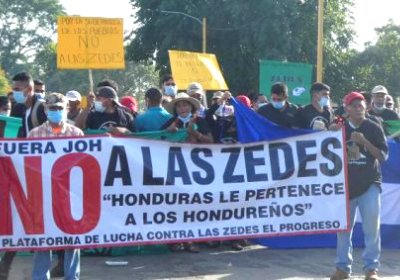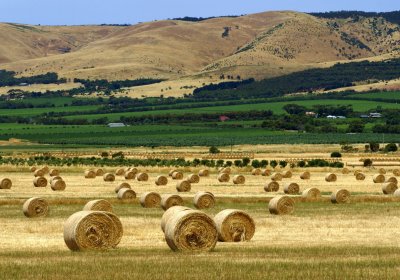More than 300,000 fires have burned more than 80 million hectares and claimed hundreds of lives across South America this year, reports Ben Radford.
Agribusiness
Honduran President Xiomara Castro signed a decree on April 25 that repealed the law creating the country's nefarious Economic Development and Employment Zones (ZEDEs), reports Ben Radford.
Indigenous peoples are mobilising in huge numbers against a proposal to open up their lands to mining and agribusiness, reports Felipe Goldman Irony.
Climate and Capitalism editor Ian Angus recommends six books for understanding the deadliest global health crisis of our time.
Alan Broughton takes a look at why the majority of farmers are still holding on to chemical methods and what can be done to increase the ecological uptake.
Climate and Capitalism editor Ian Angus takes a look at five new books for ecosocialists.
It has never been a deadlier time to defend one’s community, way of life or environment, especially in Latin America.
Last month millions of Australians saw footage of sheep dying slowly from heat and thirst while being shipped on the Awassi Express from Fremantle in Western Australia to Doha, Qatar.
Thousands of landless workers marched on July 12 through the streets of the Paraguayan capital, Asuncion, to demand the cancellation of debts contracted with the national bank.
The demonstrators have been blocking the centre of the capital since July 10, setting up their camp in front of the National Congress.
Monsanto, one of the world’s biggest pesticide and seed corporations and leading developer of genetically modified crop varieties, had a stock market value of US$66 billion in 2014. It has gained this position by a combination of deceit, threat, litigation, destruction of evidence, falsified data, bribery, takeovers and cultivation of regulatory bodies.
There is money to be made in farming, but not by the farmers.
The terms of trade for farmers continually declines and farmers are forced off the land. Governments and international bodies advocate further deregulation and trade liberalisation and greater use of technology. But these policies have undoubtedly failed in their stated aims of increasing food security and rural prosperity. The beneficiaries have been only agribusiness corporations.
In the past few years, private investors backed by corporate interests such as global banks, financial firms, hedge funds and food giants have bought a huge amount of farmland across the global South.










